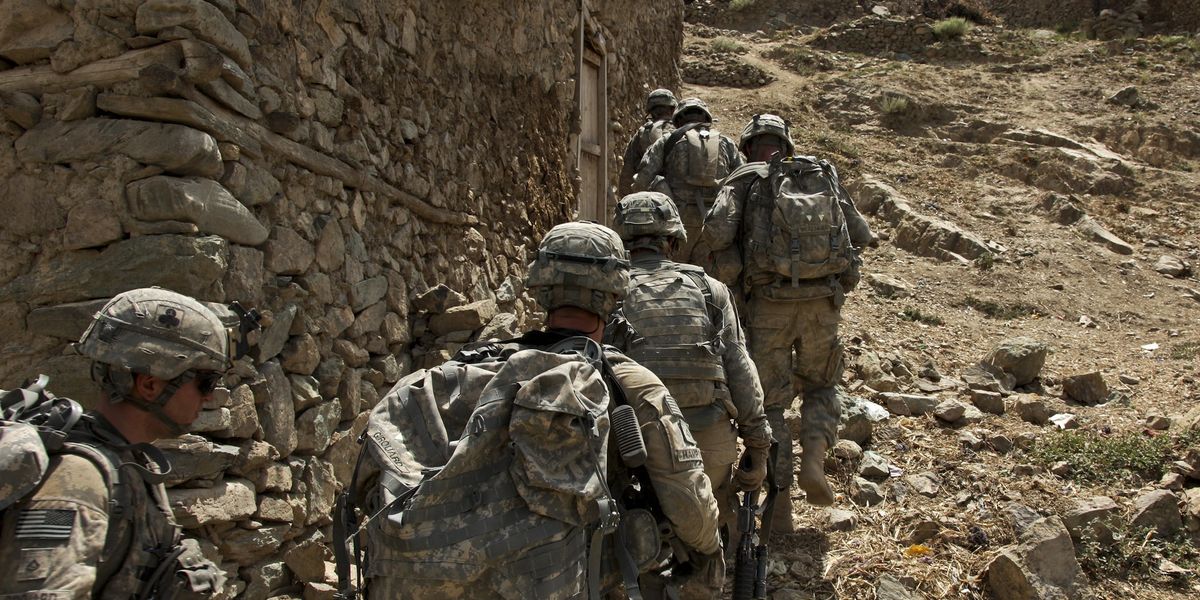Tensions are rising to new levels in the Middle East. Iran responded to Israel’s assassination of Hezbollah leader Sayyed Hassan Nasrallah by launching 180 missiles into Israel. And more recently, Israel’s bombing and subsequent invasion of Lebanon has plunged the region further into a wider ranging conflict that began with Hamas’ Oct. 7 attack on Israel and Israel’s subsequent invasion of Gaza.
Before these recent escalations, the United States had announced in September a plan to gradually withdraw American troops from Iraq. This plan reportedly would start with the removal of hundreds of troops by September 2025, with an unspecified number staying in the country, primarily in the northern Kurdish region of Erbil until at least 2026.
An administration official recently conditioned the report, saying “to be clear, the United States is not withdrawing from Iraq.” According to the official, the relationship between Iraq and the United States will supposedly move “towards the type of productive long-term security relationship that the United States has with partners around the world.”
Given the recent escalations between the so-called “Axis of Resistance” and Israel, combined with President Biden’s order to send more troops to the Middle East, some experts question whether the U.S. will withdraw American forces in Iraq on the specified timetable.
“I will believe our troops in Iraq are coming out when I see it,” said Defense Priorities senior fellow Danny Davis. “This painfully slow withdrawal schedule is suspect, because it gives so much opportunity to the administration to ‘delay’ it later. These troops are nothing but a strategic vulnerability for our country and should be fully withdrawn, in three months, not two years.”
Davis adds that U.S. troops remain vulnerable for longer than necessary with the two year timetable.
This vulnerability is especially important to consider right now, as Tyler Kotesky, policy director at Concerned Veterans for America points out. “The risks of a regional war in the Middle East are acute,” he told RS. “The United States has more important priorities elsewhere and should be reducing, not increasing its military footprint in the region.”
“Keeping our troops deployed now only gives Iranian proxies more ability to target them than otherwise," Kotesky adds.
Indeed, American forces in Iraq and Syria are thin, fairly spread out, and exposed.
“As the conflict between Israel and Iran escalates, the U.S. currently has thousands of troops spread across dozens of isolated and exposed bases in Iraq and Syria that can be easily attacked by Iranian-proxies seeking to punish the U.S. for its support of Israel,” says public policy advisor at Defense Priorities, Dan Caldwell. “It would appear that the only reason some policy makers want U.S. troops in Iraq and Syria to remain in place is to serve as a tripwire for a larger conflict with Iran.”
Despite warnings from some experts, others are more optimistic that the United States may be forced to follow through with its proposal. Michael DiMino, public policy manager at Defense Priorities, said that because risks of keeping forces in Iraq and Syria are high, he does believe that the Iraq withdrawal plan will likely go forward.
“While these deployments increase the exposure for the U.S. to more violence, I actually don’t think they will get in the way of the agreement,” he said. “Washington cannot overcome the stark reality that our presence in Iraq is fundamentally no longer tenable, which is why — begrudgingly — the Biden administration acceded to a deal in the first place.”
DiMino added, “The Iran-aligned PMF and Shia militias which now run Iraq — as a direct result of 20 years of schizophrenic U.S. foreign policy — will simply not allow American troops to remain beyond 2026.”
While experts differ on just how much the current escalations in the Middle East may affect troop drawdown plans, it is clear that American soldiers in Iraq and Syria serve no cogent strategic purpose, as the Quincy Institute’s Middle East deputy director Adam Weinstein notes, “The real risk is that U.S. troops become targets in an escalatory retaliation cycle.”
- Symposium: Aside from Bush & Cheney who is at fault for the Iraq War? ›
- ‘Mission Accomplished’ was a massive fail — but it was just the beginning ›
- The Iraq War was dominated by groupthink and absolutely no humility ›














